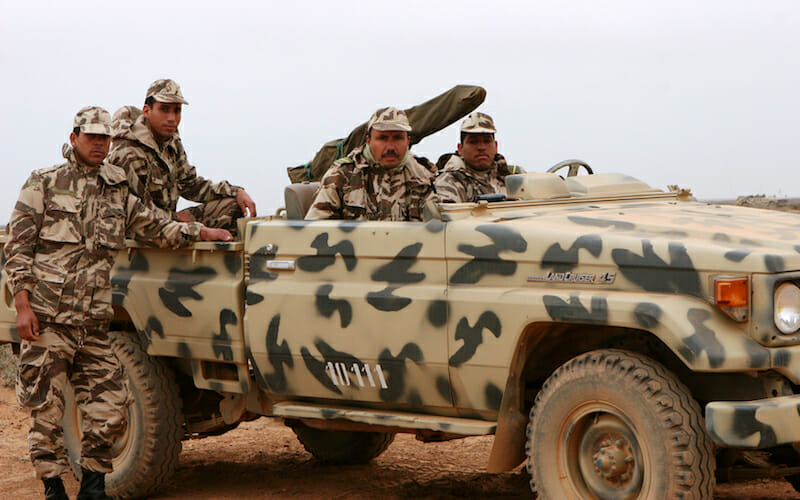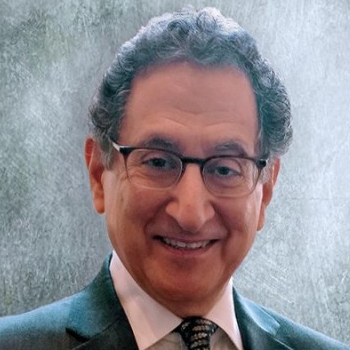
Morocco’s King Mohammed VI Reinstates Compulsory Military Service
The renewal of national conscription announced by King Mohammed VI in a speech following presentation of a draft bill to the Council of Ministers on August 20 has been greeted with confusion and concern. Although there is a backlog of pending legislation, it appears that this bill became a priority reflecting the king’s dissatisfaction with how many youth are responding to the government’s lack of momentum in resolving long-standing grievances.
While I am in favor of building strong values of citizenship, in the U.S. and elsewhere, it may be useful to consider four topics: what, why, who, and how before the law is finalized so that it is part of a larger strategy that contributes to Morocco’s development rather than a tool for tamping down dissent and promoting false expectations.
What? According to media reports, the initial statement from the Royal Palace said, “Female and male citizens aged between 19 and 25 years are obliged to do military service for 12 months. The military service aims to promote patriotism among the young, within the framework of the correlation between the rights and responsibilities of citizenship.”
It is hardly a coincidence that the proposed law follows several years of demonstrations in different parts of the country mostly led by young people fed up with the slow pace of economic development, alleged high levels of corruption among government officials, and a general lack of confidence in policies designed to give greater authority of decision-making to local authorities.
In his speech, referring to national service, the King again spoke forcefully about the need for the government to do more to curb unemployment and improve the educational system and vocational training. “We cannot let our education system continue to produce unemployed people, especially in certain branches of study, where graduates – as everyone knows – find it extremely hard to access the job market,” he said.
While the king has made this a priority for several years, the government has not been effective in aggressively moving ahead with projects, reforms, and policies that both broadly promote economic development and are inclusive of groups who are politically and economically marginalized. There is plenty of blame going around – from the inability of Parliament to use its powers to make government ministries more accountable, the impact of corruption on project awarding and implementation, the mismatch between skills acquired in schools and the demands of the market, and the complex challenges of a country in transition from a largely commodity-based economy to one more diverse and rewarding.
Why? On the surface, there are two goals in renewing military conscription: engendering a commitment to citizenship and building a sense of patriotism. These goals may overlap but they are not necessarily congruent. For example, where is citizenship focused – on country, king, local community, or elsewhere? Does patriotism shift one towards more conservative values or is it inclusive of all Moroccans, built on a shared-perspective of the country’s priorities? Or is the project, as some critics claim, a means to delay and defuse acculturation that could lead to radicalization or dropping out?
An insight into the government’s strategy, reflecting the king statements, is that in addition to military conscription, “The council also approved the draft framework law on the education, training, and scientific research system, which is part of the high royal guidelines, aimed at adopting a genuine and irreversible reform of the national education system. This law sets out the principles and objectives establishing the system of education, training, and scientific research, and those aimed at ensuring synergy between its various components so that they can fulfill their missions of ensuring quality education based on equity and equal opportunities,” according to the North Africa Post.
This two-pronged approach is a measure of the government’s commitment to programs that will empower youth with values and skills to become more able citizens and economic engines. This requires the development of a viable, sustainable, and action-based comprehensive strategy for youth development based on a broader-based vision integrating military service, national service, and educational reform to achieve these outcomes.
Who? When the king abolished the previous mandatory military service in 2006, it was said that conscription had led to a climate of apathy and did not meet “the requirements of professionalism and scientific and technological training.” How the proposed law will remedy this is unclear, along with the content of the service, how it will handle male and female recruits, who will be exempted, and what are the indicators of a successful policy?
With parliament returning to session, details such as these will be discussed and debated. Hopefully, more public input and recognition will focus on additional concrete benefits that can be achieved from this program beyond its aims of patriotism and good citizenship. It will be a disservice if the politicians end up enacting a program that favors certain socio-economic or ethnic classes either by conscription or exemption.
Other considerations that are being raised include: how will binational Moroccans living in Morocco or abroad be affected, will there be differentiation between university, high school, and primary school graduates? Will literacy play a role in qualifying for the program and will there be a remedial component? Is there any thought to a skills component to the program? These and other questions are some examples of the complexity of bridging the announcement and the implementation of mandatory military service.
How? And in all of this, what does the military itself think? Given that this could mean and intake annually of anywhere between 10,000 and 20,000 youths, how will it set priorities, expand existing facilities, develop whatever new or revised regulations are needed to manage the program, and will it be sufficiently funded with an initial build-up period rather than thousands showing up without a systematic and comprehensible intake process?
These considerations are already being debated on social media and it will be telling to gauge how it is playing a role in connecting the opinions of Moroccans with their members of Parliament, if groups concerned about the proposed law organize beyond chat rooms, if the government will use social media to build its case for the benefits of compulsory military service for youth, and what coalitions are formed for and against the program under what perspectives.
In my next article, I will explore the possibilities of recasting the military service program into a national service program that both promote patriotism and citizenship, and has the capacity to bridge rural and urban constituencies, develop marketable skills, encourage team building and leadership qualities, and add meaning to the lives of the participants, their families, and others.

